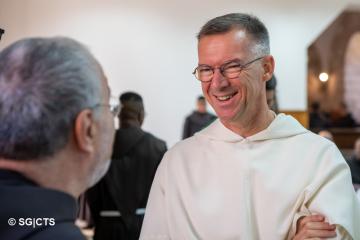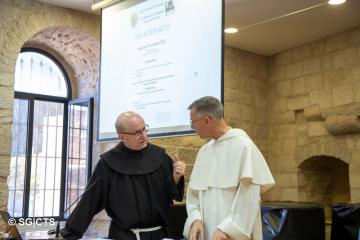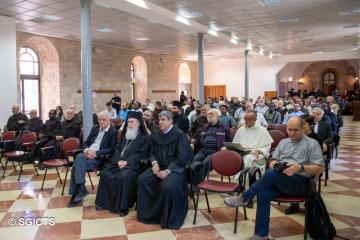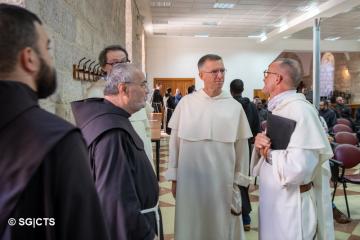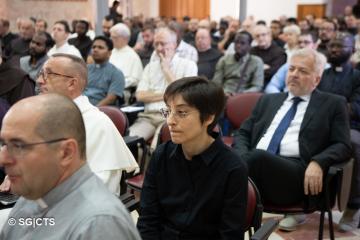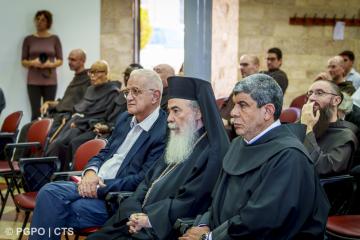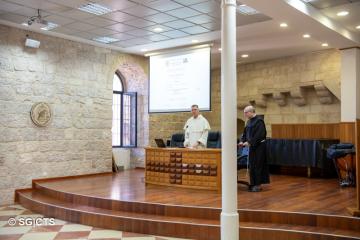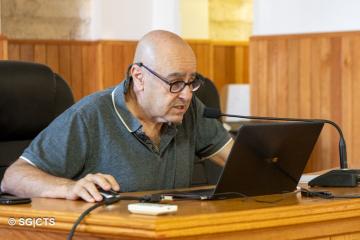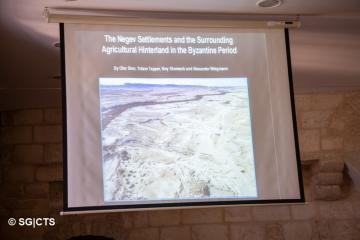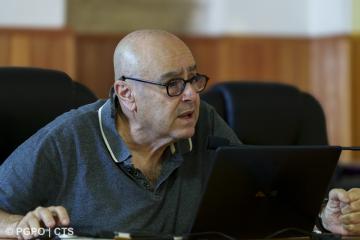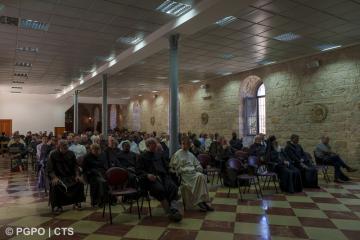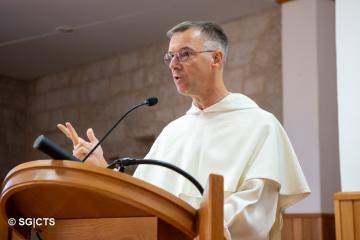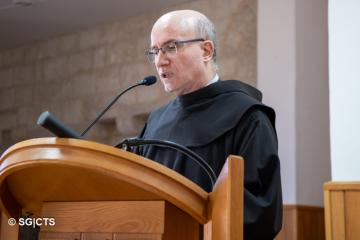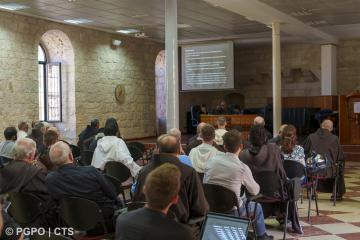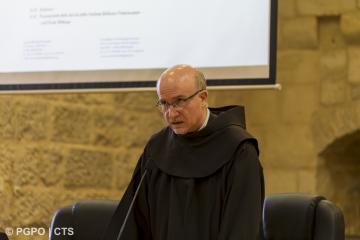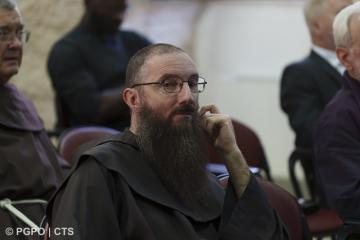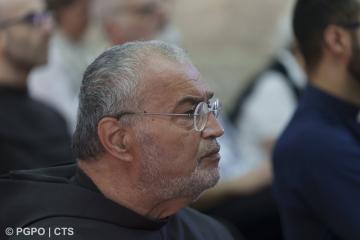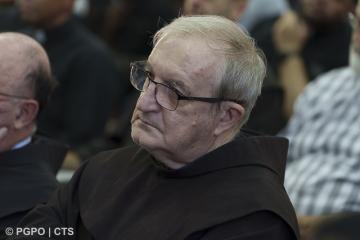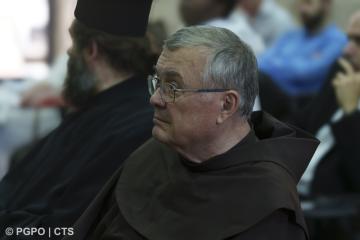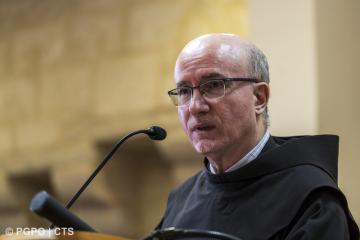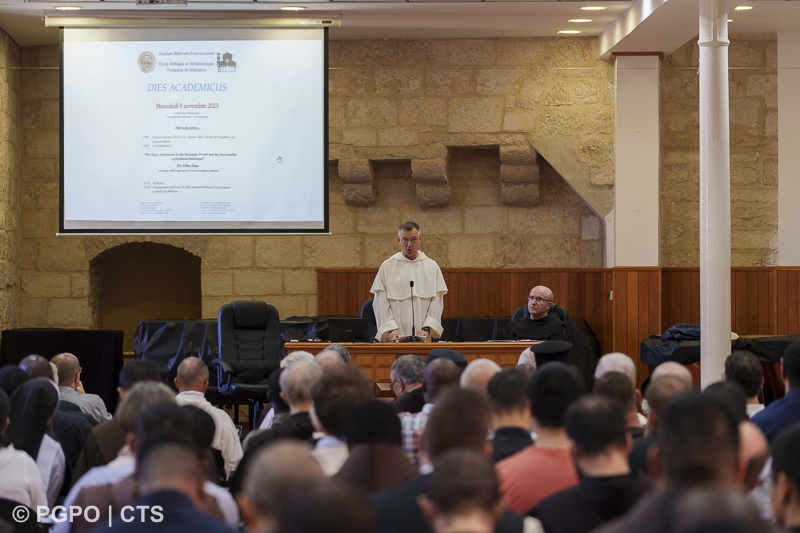
On Wednesday 8 November, in the Room of Our Lady of the Immaculate Conception in St Saviour’s Convent in Jerusalem, Franciscans and Dominicans shared the annual appointment of the Dies Academicus. Every year, this meeting opens the academic year of the Ecole Biblique and of the Studium Biblicum Franciscanum (SBF), the most important Catholic academic institutions in the Holy Land and it is hosted in turn in one of the two locations.
The welcome by the Dean fr. Pierri
In the first part of the morning, fr. Rosario Pierri, dean of the Studium Biblicum Franciscanum (SBF), welcomed and thanked the many participants – including His Beatitude Theophilos III, Patriarch of the Greek Orthodox community.
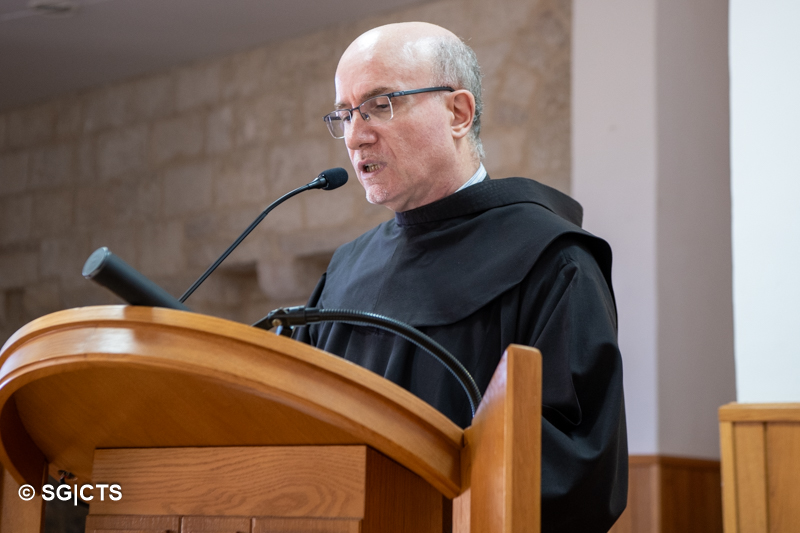
“This act today is an academic act which works as a hinge between the previous academic year and the one that has just started, a privileged time to present the future activity and what has been done,” fr. Rosario Pierri emphasized. “Often in taking stock of the past, attention is concentrated above all, if not exclusively, on the publications produced and the excavations, overlooking a part of our daily commitment which is no less important: i.e. teaching. Only a quick glance at the prospectus of the courses offered at the Ecole Biblique and the Studium Biblicum Franciscanum allows us to say, without a shadow of presumption, that it is difficult to find elsewhere a similar offer with respect to the study of the Holy Scripture, with which the opportunity to be able to dive into the heritage of books of the two institutions and to be able to attend conferences, study days and lectures that animate academic life.”
“The political events, a factor which here, in this Land, take on a character of real tragedy, have indelibly marked this period as well, opening up prospects of conflict that are underway and nobody knows when they will finish or even whether they may expand over the borders. The history of this region has always involved the Custody - or the Church – and the SFB, which is a creature of the Custody.”
Invaluable synergy
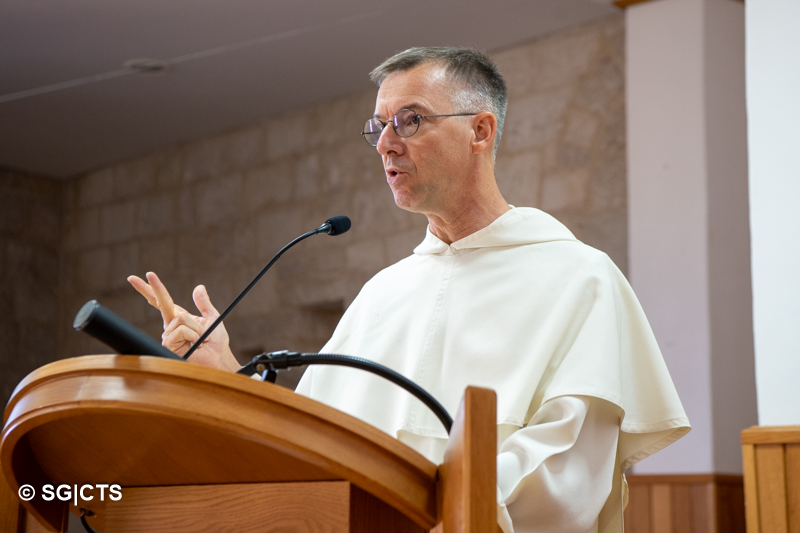
“Thank you for this welcome which perpetrates the tradition of the Dies Academicus, a sign of the invaluable collaboration, now a decade old, between Dominicans and Franciscans,” said Olivier Poquillon, o.p., who since 1 October has been the Director of the EBAF after fr. Jean Jacques Pérennès. “This is a synergy that can only continue to bear precious fruit, Despite the conflict, we have to pursue our mission: lecturers and researchers and students are summoned to share and convey the fruit of the studies and scientific work that is carried on here.”
The lecture by Ofer Sion on the Byzantine settlements in the Negev
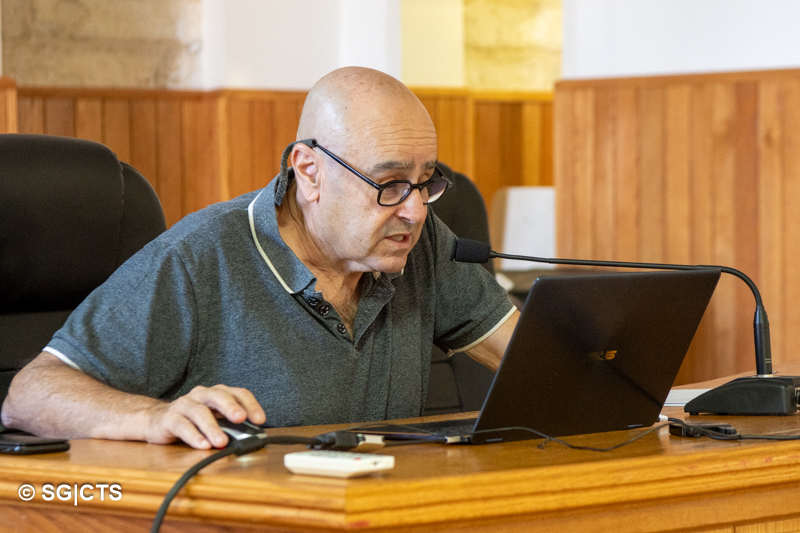
The annual lecture was held by Prof. Ofer Sion, an archaeologist and expert with the Israeli Antiquities Authority, entitled “The settlements in the Negev in the Byzantine period and the surrounding agricultural hinterland,” The Negev, studied for two hundred year in never a uniform way, today is the subject of more detailed investigations and analyses by a team of scholars and archaeologists who, thanks to the new technologies, aerial photographs and drones, can map out the territory increasingly exhaustively. An archaeological investigation has revealed intense farming activity in the Israeli desert of the Negev in the Byzantine period and the start of the 7th century. Prof. Sion showed and commented on the aerial images of Avdat, Rehovot, Saadoun, Manshit, Shivta – villages the territory of which shows how the Negev, during the Byzantine period, was occupied and cultivated far more intensely than was thought. The research will give rise to a new book which will be included in the Collectio Maior collection of the Studium Biblicum.
The 100 years of the Studium Biblicum Franciscanum
Lastly, in the second part of the morning, both directors illustrated the events and the scholastic and scientific excursus of the past academic year and anticipated the activities of the current year.
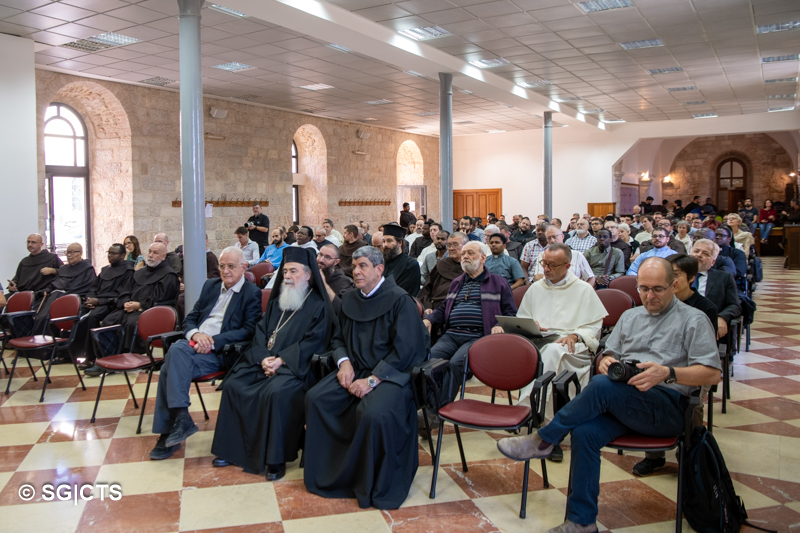
Fr. Rosario Pierri concentrated attention on the Centenary of the Studium Biblicum: “Going over only briefly the history of the Studio Biblicum Franciscanum which this year celebrates its centenary, it came into being when the Custody of the Holy Land decided to open a centre of studies and scientific production of its own in which no fewer than seven centuries of research converged. It had in the work of Fathers Francesco Quaresimi and Bernardino Amico two of the greatest representatives of the Franciscan school of Palestinology. This subject will be dealt with in greater detail at the appointments which we have planned in Rome and in Jerusalem in the second semester. In this historical perspective, which goes well beyond the 100 years of the centenary, we are once again admiring spectators of how that small seed planted on 7 January 1924 has grown and continues the mission for which it was conceived to spread the word of God and for the good of the Church.”
Silvia Giuliano


